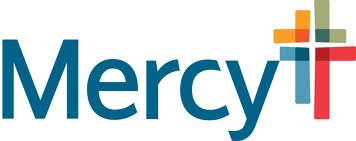Since so many people spend January making steps to change their life, their bodies and/or their health, we knew this would be the perfect time to get answers about weight loss that’s designed and monitored by doctors. When you’re trying to make a huge physical change, it’s smart to have a doctor involved who can make sure the process is a safe, healthy one with the best chance of success.
 Below is an interview with Dr. Mark Perna and Krisha Jech, RN BSN, who are part of a team with Mercy that provides different options for weight loss including healthy life style changes, a medically-managed weight loss program, and surgery with Mercy Bariatric Center NWA.
Below is an interview with Dr. Mark Perna and Krisha Jech, RN BSN, who are part of a team with Mercy that provides different options for weight loss including healthy life style changes, a medically-managed weight loss program, and surgery with Mercy Bariatric Center NWA.
How is a weight loss plan administered by a physician different than any other diet?
A Physician-monitored weight loss plan offers opportunities that other plans like Weight Watchers do not. This includes monitoring of certain medical conditions currently present and also for ones which may arise while participating in the weight loss program. Medication adjustments or possibly the addition of medications might occur while participating.
What factors would make me a good candidate for this type of weight loss plan?
The Mercy Medical Weight Management would be appropriate for a patient who has a Body mass Index (BMI) of 30 or more. This patient might also have an obesity associated medical condition such as high blood pressure, high cholesterol, Type 2 diabetes mellitus, etc. In some existing extenuating circumstances, the program might be appropriate for a slightly lower BMI due to the medical necessity to reduce weight.
Does a physician-assisted weight loss plan include prescriptions and/or surgery?
Yes, it could include either or both, depending on what you and your physician decide are the best options for your particular need. Surgery can be offered as an option to those with a body mass index (BMI) greater than 40, or a BMI between 35-39.9 with an obesity-related medical condition.
Does insurance cover it?
In case of medical necessity, insurance may cover the medical visits and services associated with the Mercy Medical Weight Management program, but the cost of meal replacements and group sessions is not submitted to insurance.
Bariatric surgery, on the other hand, is finding more and more insurance providers that are covering bariatric weight loss surgery. This coverage may include some very specific requirements on the part of the patient but with Mercy Bariatric Center NWA, we have built our program around the needs of the insurance companies as well as ensuring a strong preparation period before surgery.
What is the OptiFast program and how long does it last?
Optifast is the patient-centered program that we at Mercy Medical Weight Management have chosen to facilitate. This is a proven weight loss method incorporating weight loss via low-calorie diet with comprehensive lifestyle education components along the way. Because we consider obesity to be a chronic disease, the length of the program is indefinite. There are three phases which include an active weight loss phase where the patient is on meal replacements only, a transition phase where the patient transitions to regular food, and a maintenance phase where the patient is on regular food only or regular food and just a few meal replacements. The typical time for the active phase is 12 weeks and 6 weeks for the adapting phase. These may be lengthened depending on the needs of the patient.
What kinds of results do you usually see when patients are on a weight loss plan that is administered and supervised by a doctor?
It really depends on the intensity of the plan and on the readiness of the individual to make long-term lifestyle changes. We at Mercy Medical Weight Management usually expect to initially see a 1-2% loss of body weight weekly. The very obese patient might expect to lose over 50 pounds in 18-24 weeks. This weight loss could be temporary and will depend upon the participant’s follow-through on behavioral change. We can support that endeavor in the maintenance phase of the program with ongoing support from professionals and peers.
If a doctor determines that a weight loss surgery is in the best interest of the patient, what are the most effective surgical options available today?
Bariatric surgery is no longer considered a last resort option for patients who struggle with morbid obesity. In fact, many patients and treating physicians are exploring and opting for bariatric surgery earlier in the treatment plan for weight loss. There are several reasons for this change.
First, the surgical options are safer than they have ever been. Nearly all procedures are done laparoscopically, which speeds recovery and lowers complications.
Secondly, the preoperative teaching and postoperative support has been vastly improved to optimize the long-term success of patients.
Finally, these procedures not only provide long-term meaningful weight loss but also improve or resolve chronic medical conditions such as Type 2 diabetes, high blood pressure, and sleep apnea. They can also boost quality of life and help people live longer. The most common procedures performed today are:
Laparoscopic Gastric Band (a purely restrictive procedure)
Pros: Relatively low risk, Adjustable, Reversible
Cons: Relatively less weight loss, not as good for Type 2 diabetes, Band can slip
Laparoscopic Sleeve Gastrectomy (A mostly restrictive procedure)
Pros: Relatively low risk, strong weight loss results, no bypassed small intestines
Cons: Not good procedure for severe reflux, not reversible
Laparoscopic Roux-en-Y Gastric Bypass (A combined restrictive and malabsoprtive procedure)
Pros: Best weight loss results, most improvement in Type 2 diabetes, high blood pressure, and sleep apnea
Cons: Some malabsorption
For more information on the Mercy Bariatric Center NWA, call Krisha, the Bariatric Program Coordinator, at 479-338-2266. You can also visit their website by clicking HERE.






